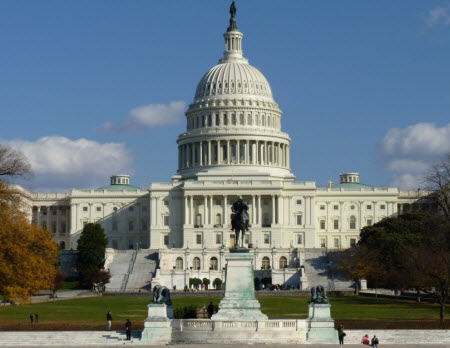House Subcommittee Will Look at CPNI

The smarter way to stay on top of the multichannel video marketplace. Sign up below.
You are now subscribed
Your newsletter sign-up was successful
The Republican-led House Communications Subcommittee wants to look at protecting CPNI (Customer Proprietary Network Information) beyond the 1996 Communications Act requirement on telecom nets.
It is yet another dive into the different regulatory standard for networks versus edge platforms.
"Under the Communications Act of 1996, telecommunications carriers must protect the confidentiality of..the personal information that consumers relay when communicating over telecommunications networks," the subcommittee explained in scheduling the hearing. "However, consumers today communicate across many other types of networks via apps, and online platforms and services."
There are many pages of CPNI rules dictating access and use.
The Subcommittee says it is "critical that consumers' personal information is protected no matter what kind of network they're using."
Both the Act and FCC rules require telecoms and interconnected VoIP providers to protect CPNI, which includes phone numbers called and the frequency, duration and timing of calls, and requires providers to file annual reports to certify compliance.
CPNI is considered sensitive info and FCC rules require customer approval (opt-in) for its use by third parties or for other than providing the telecom service--routing calls, for example--or marketing the providers own services within a category of service the subscriber already gets or preventing fraud. .
"[W]e thank Chairman Pai for his swift response on this 50th Anniversary of the Commission’s original EEO decision," said MMTC acting President Maurita Coley. "The Chairman’s decision to urge that EEO enforcement be moved from the Media Bureau to the FCC’s Enforcement Bureau speaks volumes about his willingness to listen, and to act, on proposals from civil rights and social justice advocates about diversity. The FCC’s bold decision 50 years ago in a divided nation to stop discrimination in broadcast hiring paved the way for diverse leaders such as Chairman Pai and former Acting Chairwoman Mignon Clyburn – the first Indian-American and African-American woman FCC Chairs, respectively – to rise to leadership positions that were previously inaccessible to people of color. The action today will help the world to see that ensuring equal opportunity is serious business at this FCC, and it sets an example for other industries, such as the tech industry, that have missed the mark.”
The smarter way to stay on top of the multichannel video marketplace. Sign up below.
Contributing editor John Eggerton has been an editor and/or writer on media regulation, legislation and policy for over four decades, including covering the FCC, FTC, Congress, the major media trade associations, and the federal courts. In addition to Multichannel News and Broadcasting + Cable, his work has appeared in Radio World, TV Technology, TV Fax, This Week in Consumer Electronics, Variety and the Encyclopedia Britannica.

